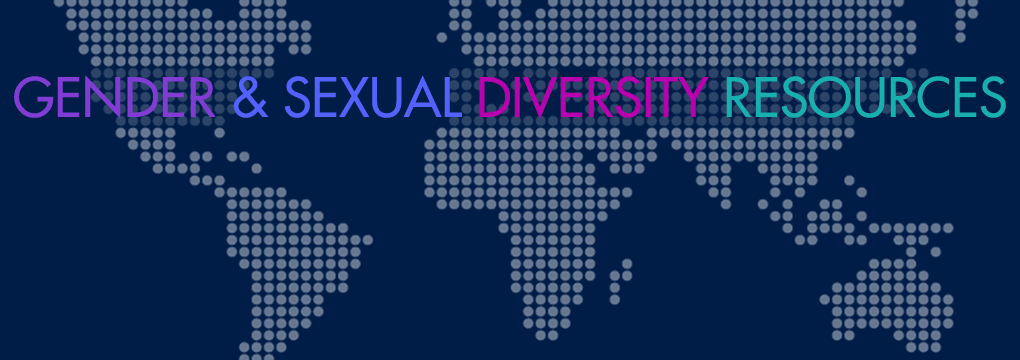The Health Policy Project ended in 2016. Work continued under Health Policy Plus (HP+) until 2022.
Gender and Sexual Diversity Resources: Module 4

Module 4: Responsible Engagement
This module builds on the work done by global and regional organizations around Gender and sexual minorities (GSM) issues to define the concept of responsible engagement and enables participants implementing program activities for GSM to share their best practices.
Responsible Engagement and Key Populations
International donors and regional organizations have developed recommendations on how to respect political and cultural realities when addressing gender and sexual diversity (GSD) issues.
PEPFAR Technical Guidance on Combination Prevention
http://www.pepfar.gov/documents/organization/164010.pdf
As described in the background section, "…multiple [HIV] epidemics exist within diverse populations and social networks, including concentrated epidemics within larger generalized epidemics. Identifying and targeting interventions to match the needs of multiple populations is difficult, especially when such epidemics involve groups that are often marginalized and discriminated against. This guidance is one component of PEPFAR's larger efforts to support comprehensive combination prevention responses in the countries where it operates."
Respect, Protect, Fulfill: Best practices guidance in conducting HIV research with gay, bisexual, and other MSM in rights-constrained environments
http://www.amfar.org/uploadedFiles/_amfar.org/In_The_Community/Publications/MSMguidance2011.pdf
The specific aims of the guidance are to help researchers and community organizations better design and conduct meaningful research, to provide a check list for researchers and community organizations to consider during the entire research study process, and to offer lessons learned.
International Organizations Working on GSD
Global and regional organizations that both comprise and represent individuals of key populations play a vital role in effectively addressing the needs of GSM and achieving a program's overall goals.
African Men for Sexual Health and Rights (AMSHeR)
http://www.amsher.org
AMSHeR is a coalition of MSM/LGBTI-led organizations formed to respond to the human rights violations faced by LGBTI people and the disproportionate affects of HIV on MSM in Africa.
The Global Forum on MSM and HIV (MSMGF)
http://www.msmgf.org/
The Global Forum on MSM and HIV is a network of advocates and experts in health, human rights, research, and policy. The forum works towards an effective response to HIV among MSM.
Safety and Security
Programs often work with GSD issues in environments with obstructive policies; the following resources offer guidance on how individuals working for these programs can protect their clients and themselves.
- HIV and Young Men Who Have Sex with Men: A Technical Brief: Draft
http://www.who.int/hiv/pub/guidelines/briefs_msm_2014.pdf - Knowledge Hub: Addressing Security and Human Rights Challenges in Complex Environments
http://www.securityhumanrightshub.org/
Tools for Responsible Engagement with GSD
The following tools can be used in the field to address GSD issues.
- Policy Analysis and Advocacy Decision Model for Services for Sex Workers, Transgender, and Males Who Have Sex with Males
http://www.healthpolicyproject.com/index.cfm?ID=HIVPolicyModels - Promoting the Health of Men Who Have Sex with Men Worldwide: A Training Curriculum for Providers
http://www.msmgf.org/promotinghealth

